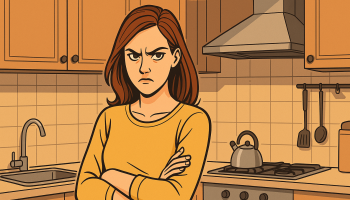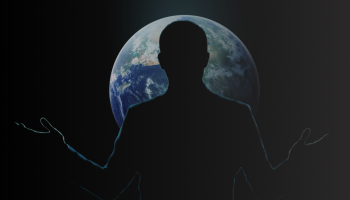Have you ever wondered who’s watching when you go online? You’re not alone. From the moment you open your browser, companies, websites, internet providers, and even hackers are tracking your moves. The truth is simple: everything you do online is logged—unless you take steps to protect yourself. That includes the websites you visit, what you search for, your location, and even how long you stay on a page.
You may think going “incognito” or using private browsing is enough. It’s not. Private browsing only hides your activity from people who use the same device, not from your internet provider or the websites you visit. If you really want to keep your online activity private, you need a better solution. That’s where a VPN comes in.
Your Internet Provider Sees It All
Every time you go online, your internet service provider (ISP) is the middleman. It connects you to the websites you want to visit. That means your ISP knows exactly where you go, what you do, and how long you’re there. It logs all of this data. It doesn’t matter if you’re watching videos, checking email, or reading news—everything you do online is logged.
ISPs don’t just collect this data for fun. In many countries, they’re legally allowed to sell your browsing history to advertisers or other companies. That means your personal data can be used to target you with ads or even affect what content you see. Worse, this information can be handed over to the government without you knowing.
Websites Track You Too
Even if your ISP wasn’t watching, the websites you visit definitely are. Most websites use cookies—small files that track what you do on the site. These cookies can remember your login, your interests, and even what you put in your shopping cart. Some cookies follow you from site to site, collecting your data as you browse. Again, everything you do online is logged.
Think about it. You search for sneakers on one website, and suddenly sneaker ads show up on every other website you visit. That’s not magic—it’s tracking. Websites, ad networks, and social media platforms all share your data with each other. It’s how they make money. And once your data is out there, you have zero control over what happens to it.
Free Wi-Fi Is Never Safe
Public Wi-Fi might be free, but it comes with a cost. When you connect to open networks at cafes, airports, or hotels, you’re basically opening the door to hackers. Most public Wi-Fi networks have weak security or none at all. That makes it easy for cybercriminals to intercept your data. And again, everything you do online is logged—but this time, by people you really don’t want watching.
Hackers can set up fake Wi-Fi networks that look real, tricking you into connecting. Once you’re on, they can steal your passwords, credit card numbers, and private messages. Even if the network is real, your information can still be visible to others on the same connection. Without protection, public Wi-Fi is one of the most dangerous places for your personal data.
Search Engines Keep a File on You
Search engines like Google keep detailed records of your searches. Every time you look something up, it gets saved. Over time, they build a full profile on you—what you like, what you’re curious about, and even what you’re worried about. This profile is used to personalize your search results and ads. But it also means that everything you do online is logged and stored.
This data doesn’t just sit there. It can be used by marketers, sold to third parties, or requested by authorities. Even if you delete your search history on your computer, the search engine still has it. If privacy matters to you at all, this should raise a red flag.
Social Media Never Forgets
Every like, share, comment, or message you send on social media is saved. Even deleted posts can still be stored on the platform’s servers. Social media companies use this data to show you more of what they think you want—but they’re also making money off your habits. It’s important to remember that everything you do online is logged, and that includes your social life.
People often share personal details on social media without thinking. This information can be used in ways you never expected. Employers, advertisers, and even strangers can access your data depending on your privacy settings. Once it’s out there, it’s almost impossible to fully erase.
Your Devices Are Always Listening
Smartphones, smart TVs, and even voice assistants like Alexa or Siri are always on. They’re built to listen for wake words like “Hey Siri,” but that means they’re always listening to something. There have been multiple cases where devices accidentally recorded conversations and sent them to strangers. So yes, everything you do online is logged, but some of it doesn’t even require a keyboard.
Apps on your phone also collect data constantly. Location tracking, contact lists, microphone access, and more—all logged. Many free apps make money not by offering a service, but by collecting and selling your data. Even apps that seem harmless can be massive privacy threats.
What a VPN Actually Does?
A VPN, or Virtual Private Network, is a tool that hides your online activity. It creates a secure, encrypted tunnel between your device and the internet. When you use a VPN, your ISP can’t see what you’re doing. Websites can’t track you in the same way. Hackers can’t steal your information on public Wi-Fi. In short, a VPN is one of the only tools that makes it untrue that everything you do online is logged.
When you connect to a VPN server, your real IP address is hidden. Your online traffic looks like it’s coming from a different location. This gives you more privacy and also helps you access content that might be blocked in your country. Whether you’re watching videos, sending emails, or just browsing, a VPN protects you every step of the way.
Why Not All VPNs Are Equal
Not every VPN is trustworthy. Some free VPNs actually log your activity and sell your data—the exact thing you’re trying to avoid. Others have slow speeds, weak encryption, or limited server options. If you’re going to trust a VPN to protect your privacy, you need one that’s fast, secure, and most importantly, doesn’t log anything you do.
Look for a VPN with a strict no-logs policy. That means they don’t keep any records of what you do online. They can’t sell your data because they don’t even store it. The best VPNs also offer advanced features like DNS leak protection, kill switches, and double encryption. Don’t settle for anything less.
The Law Isn’t on Your Side
You might think the government would protect your privacy. Unfortunately, that’s not always the case. In many countries, ISPs are required to keep logs of your online activity. Some governments even force tech companies to hand over user data if asked. If you’re not usingprotection, everything you do online is logged—and can be used against you.
Even in countries with strong privacy laws, enforcement can be weak. And laws can change at any time. A VPN gives you control over your data, regardless of where you live. It keeps your information private, even if the law doesn’t.
School and Work Networks Watch You Too
If you’re at school or work, you should know that your internet usage is being monitored. Schools track which websites students visit. Workplaces monitor employee browsing, emails, and sometimes even keystrokes. So again—everything you do online is logged, especially on networks you don’t own.
Using a VPN can protect your privacy in these environments. While you should always follow school and work rules, a VPN can help keep personal matters personal. If you’re researching sensitive topics or checking personal accounts, it’s smart to keep your activity private.
Uncensored.io VPN: Real Privacy, No Logs
If you’re serious about keeping your online life private, you need a VPN you can trust. That’s where Uncensored.io VPN comes in. Unlike many providers, Uncensored.io follows a strict no-logs policy. That means even if someone wanted your data, there would be nothing to find—because nothing is stored.
Uncensored.io VPN uses high-level encryption to protect your data from hackers, ISPs, and trackers. It works on phones, laptops, and even routers. Whether you’re at home, at school, or on public Wi-Fi, you’ll stay protected. Plus, it offers fast speeds, unlimited bandwidth, and global server locations so you never have to sacrifice performance for privacy.
Most importantly, Uncensored.io VPN ensures that everything you do online is not logged. It’s one of the few tools that gives you real freedom online. If you value your privacy, there’s no better choice.





